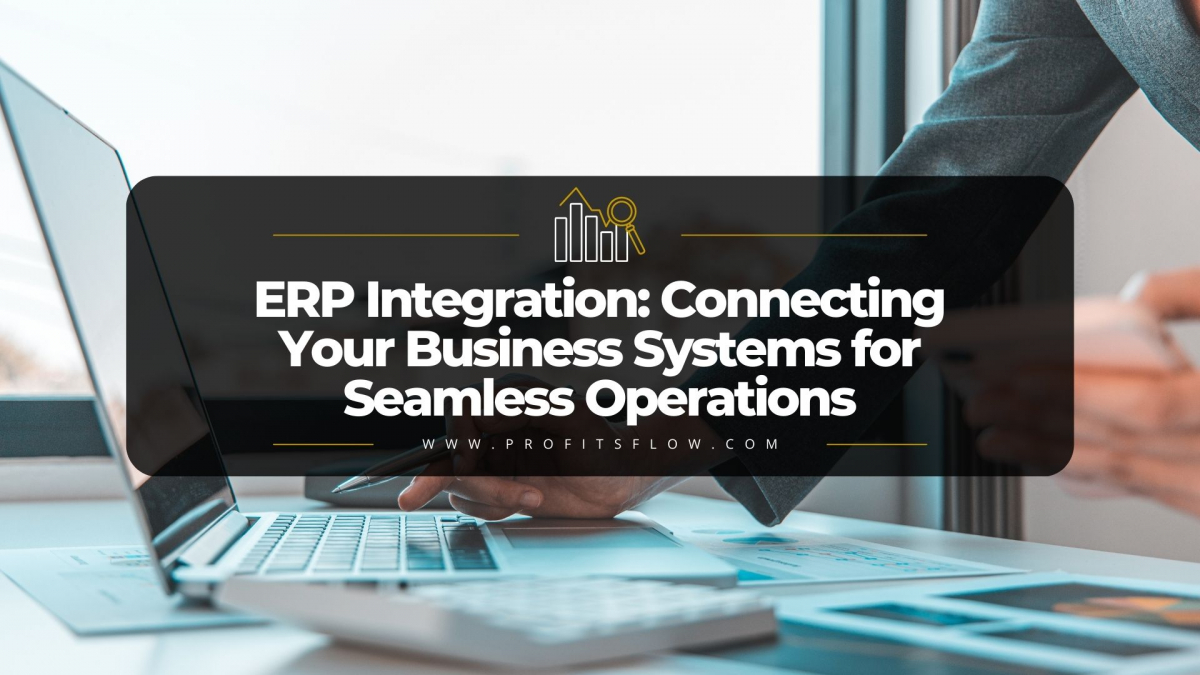Unlocking the Power of Synergy: Seamlessly Integrate Your Business Systems with ERP for Optimal Operations
In today’s fast-paced business environment, efficient and streamlined operations are key to success. As organisations grow and evolve, they often end up with multiple disparate systems and software applications that do not communicate effectively with each other, leading to data silos, manual processes, and increased complexities. This is where Enterprise Resource Planning (ERP) integration comes into play. ERP integration is the process of connecting different business systems and applications to enable seamless data exchange, automate processes, and enhance overall operational efficiency. In this blog, we will delve into the importance of ERP integration and how it can help businesses unify their systems, simplify their processes, and achieve optimal operations for sustained success in today’s competitive landscape.
ERP integration enables businesses to break down data silos and create a unified ecosystem where information flows seamlessly across different departments and functions. By integrating various systems such as finance, human resources, supply chain, customer relationship management (CRM), and others, businesses can eliminate data duplication, reduce manual data entry, and ensure data accuracy and consistency throughout the organisation. This not only saves time and effort but also improves data integrity and enables data-driven decision-making. With ERP integration, businesses can achieve a holistic view of their operations which can allow them to gain a huge business advantage in the form of growth and profits.
One of the key benefits of ERP integration is the ability to simplify business processes. Many organisations struggle with complex and fragmented processes due to disconnected systems, resulting in inefficiencies, errors, and delays. ERP integration allows businesses to automate and streamline their processes by seamlessly exchanging data and triggering actions across different systems. For example, when a sales order is entered in the CRM system, ERP integration can automatically update the inventory in the warehouse, generate a purchase order to replenish stock, and create an invoice in the finance system, all in real-time. This end-to-end automation eliminates manual handoffs, reduces errors, and speeds up processes, resulting in improved operational efficiency and customer satisfaction.
Moreover, ERP integration enables businesses to leverage the full potential of their existing systems and applications by integrating them into a cohesive ecosystem. Many organisations have invested in specialized systems for different functions such as accounting, inventory management, payroll, and others. ERP integration allows these systems to work together seamlessly, eliminating the need for duplicate data entry and reducing system redundancy. This not only maximizes the value of existing systems but also avoids costly and time-consuming system replacements. ERP integration acts as a force multiplier, amplifying the capabilities of existing systems and creating a unified technology landscape that supports the needs of the entire organisation.
In addition, ERP integration enhances data visibility and reporting capabilities, which are critical for informed decision-making. With data flowing seamlessly between different systems, businesses can access integrated data in real-time and generate accurate and up-to-date reports for analysis. This enables organisations to gain insights into their operations, identify trends, spot opportunities, and address challenges proactively. ERP integration empowers businesses with a single source of truth, eliminating data discrepancies and ensuring data integrity, which is essential for making data-driven decisions with confidence.
In conclusion, ERP integration is a game-changer for businesses looking to unify their systems, simplify their processes, and achieve optimal operations. It enables organisations to break down data silos, automate processes, leverage existing systems, and enhance data visibility, leading to improved operational efficiency, enhanced decision-making, and sustained business success. As businesses continue to face evolving challenges and complexities, ERP integration offers a strategic advantage by creating a cohesive ecosystem that drives efficiency, agility, and growth.
